When I first heard about Horizon Zero Dawn, I thought it was too good to be true. As a redhead with a penchant for archery and ongoing curiosity about the intersection between nature and tech, this game aligns perfectly with my interests. And honestly, I fully expected it to disappoint me.
In an industry that’s increasingly failing to deliver what promotional materials promise, I was very skeptical of Horizon in spite of my hype for its premise. I even held off on pre-ordering until the last second. But after sacrificing lots of sleep just to get one more hunt in, I have to say…this game definitely delivers.
Even though I work in the industry, it’s been a long time since I’ve really looked forward to a game. And it’s been even longer since I sank 8+ hours into a single player game. Until now.
Horizon Zero Dawn is far, far better than I expected. It’s beautiful, it’s smooth, and I can’t put it down. To put it simply: I haven’t loved an RPG this much since Skyrim.
Two Worlds (Beautifully) Collide
Aside from obvious parallels with the main character, the thing that really drew me to Horizon was how it meshes the natural with the mechanical. In this post-technological society, machines of any type are considered dangerous — sentient or not. The matriarchal society in which you live shuns everything that comes from “the Metal World”, and is so far removed from technology that they seem to think it’s magic.
Making these two opposing forces work in tandem requires a delicate balance, and Horizon nails it. Combat that would be primitive becomes much more nuanced with the use of your Focus and weapon modifications. Your enhanced vision in said Focus feels less like a hand-holding gimmick and more like a natural extension of how you understand the world.
What’s most impressive is how well this dichotomy works aesthetically. It could have easily been an awkward meshing of organic and inorganic, but Guerilla Games did an excellent job of unifying the two in stunning landscape after stunning landscape. It’s vibrant, dynamic, and astoundingly detailed. Heck, even the UI is a nice mix between rugged-looking graphical elements and smooth, clean fonts and menus.
Maybe I’m just a sucker for shiny metal lines and neon lights. But over and over again, Horizon made me stop in my tracks to take in the view.
Taking Cinematic to a Whole New Level
As lovely as the game world is, the cutscenes are even better. Although you will definitely notice some odd clipping at times, these cinematic breaks are downright gorgeous. From the intense detail in clothing and weapons to the uncanny expressiveness of NPC faces, they’re nothing short of artistic. You’ll even see subtle shifts in lighting and depth of field that make these scenes feel more filmic.
Just watch the one below if you don’t believe me.
I’ll also give a quick nod to the Photo Mode, which is tons of fun to use. It’s not touted as a main draw for the game, but the sheer number of options and how aptly it lets you capture the lovely world around you will have you playing with it time and time again. Photo Mode can be a little finicky to work with and doesn’t quite do a great job of explaining how to use it, but you can’t really argue with the beautiful screengrabs you’re able to get.
The Best of Form & Function
A game can be beautiful without being good, so how does Horizon perform in terms of nitty-gritty mechanics? Almost as well as it does in terms of graphics.
You get a decent taste of gameplay in a tutorial that’s fairly explanatory, but much less hand-holdy than many recent ones I’ve played through. And it’s nicely spaced out so that you don’t spend your first 20 minutes being made to feel like a dumb toddler (even though you kind of are).
My biggest praise for the gameplay is how well it streamlines many of the mechanics that tend to slow down RPGs. For example, crafting can be done manually through the inventory screen, or on the fly during combat with your weapon wheel and a 1-button press. The D-Pad is also better utilized than I’m used to in most games, and it allows you to quickly access a number of consumable items or commands without leaving the real action to sort through menus.
With a 1-click auto-heal, a simplified weapon selection screen, and what is essentially a D-Pad hotbar, I found myself pausing Horizon far less frequently than I’m used to in RPGs. And it’s definitely a welcome change that makes the immersion feel even more seamless.
If Only the Combat & Controls Were So Smooth
I have very few complaints about Horizon Zero Dawn. But among them, the combat and controls are my biggest gripes.
Mechanically speaking, Horizon plays much like every other modern action RPG — think Assassin’s Creed, the Arkham trilogy, or Shadows of Mordor. But even though I’ve played and enjoyed all of those games, something about the control scheme here felt very off to me. A few of the button combinations are very awkward to execute, and some of the mapping seems like it’s inverted from what tends to be the standard for the genre. Controls feel very mixed together at times.
In combat, for example, you have to hit R3 to open Focus and scan your target, toggle it again to turn it off, then hit L1 to open your weapon selection screen. Once you’ve got your weapon, you’ve got to hit L2 to aim, R2 to fire, then R1/R2 to follow up with a melee attack.
This doesn’t feel very intuitive at all, and spreads your attention all over the controller rather than allowing for a natural flow between common action chains.
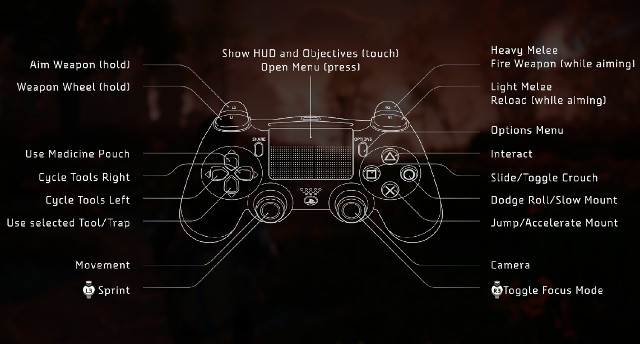
After really making an effort to get used to the controls it does get better, but it can be very frustrating when you’re starting out — especially if the problem is exacerbated by a weapon wheel that likes to misbehave or continually skip over one type of ammo. In those cases, the fact that combat doesn’t stop while you try to switch weapons doesn’t work in your favor.
It’s also worth noting that combat can be very laggy at times — not because the game itself is lagging, but because the timing on attacks (specifically melee attacks) just feels too slow. If you’re scrapping it out with an enemy, it can take several seconds to charge up a single heavy attack — which really makes close-quarters encounters feel clunky.
That said, the game does give you a lot of options for varying your playstyle and trying new strategies. So if a particular aspect of combat just doesn’t work for you, there are plenty of other ways to approach a hostile situation.
A Good Story to Wrap It All Up In
I haven’t unfolded every piece of story in Horizon Zero Dawn yet, but so far, it’s right up there with RPG icons like The Elder Scrolls. Though the lore isn’t nearly as in-depth as what you’ll find in TES, the active narrative is just as immersive. There are lots of mysteries to uncover, and your Focus tech gives you special insight into the world around you that’s lost on most everyone else.
Horizon does make the same mistake as most other RPGs in that it pushes a little too hard on the whole “you’re super extra special” thing. In this game specifically, the outcast angle comes on a little strong — especially in the first few hours of the game. We watch child Aloy struggle with bullying and her outcast status in a series of cutscenes that eerily mimic my childhood are nicely crafted and narratively revealing. But then the dialogue writers come along and make sure that every person you encounter doubles down on a message that’s already been hammered home.
Otherwise, my gripes with the narrative are more editorial than they are reasonable. I found it a little frontloaded and at times unnatural in its dialogue, but that’s really peanuts compared to the expressiveness of the characters and how much I enjoy Aloy’s character.
Of course, I do have to take a moment for the obligatory discussion of where our redheaded huntress fits in on the scale of “strong female characters” — though frankly, it almost feels irrelevant to do so given how little impact Aloy’s gender has on the game itself. Horizon is set in a matriarchal society, so women, in general, have a commanding presence that’s refreshing to see. But for the protagonist specifically, being female is basically a non-factor. It doesn’t make her armor any skimpier or tighter-fitting than you’d expect given the setting. It doesn’t ever come up in conversation with NPCs. Aloy is a badass chick, and everyone around her only cares about the “badass” part.
She’s is the sort of balanced, capable heroine that most of us have wanted — feminine and powerful in the tradition of Lara Croft, but without the gratuitous sex appeal.
Verdict
I highly, highly recommend Horizon Zero Dawn to anyone who is a fan of RPGs and open world games. It’s stunning to look at, has a deeply immersive world, and for the most part, it offers a smooth gameplay experience.
Some people might think it’s just a pretty re-skin of every other action RPG out there, but Horizon takes some bold steps in the right direction when it comes to aesthetics and streamlined functionality. In spite of some issues with control mapping, combat flow, and narrative execution, this game is really quite impressive.
I’m definitely hooked — and I don’t think I’ll be putting it down for a long, long time.

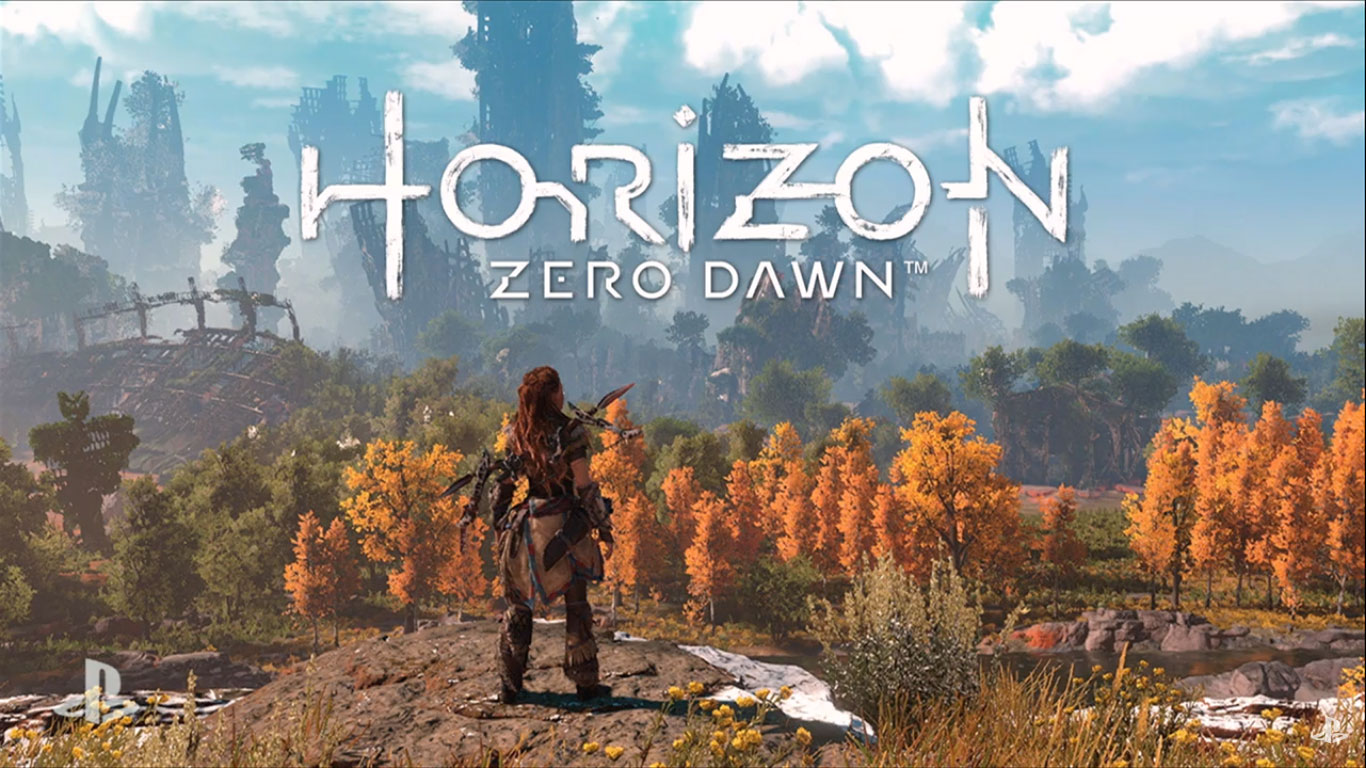
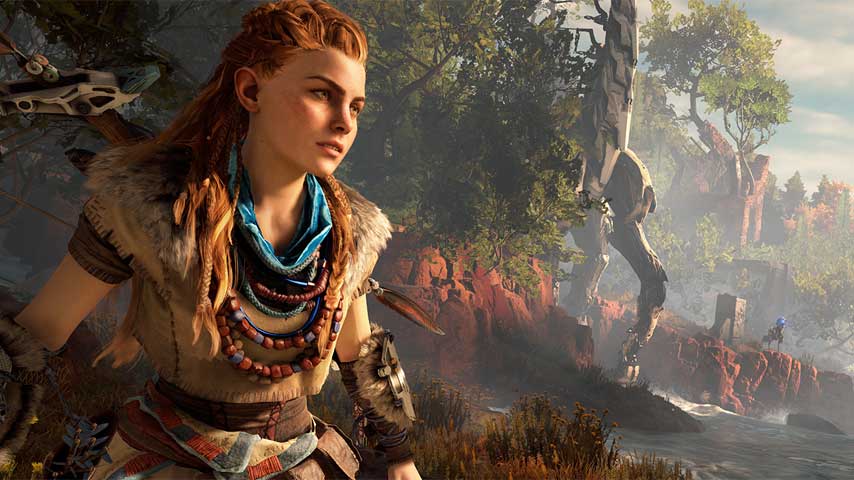
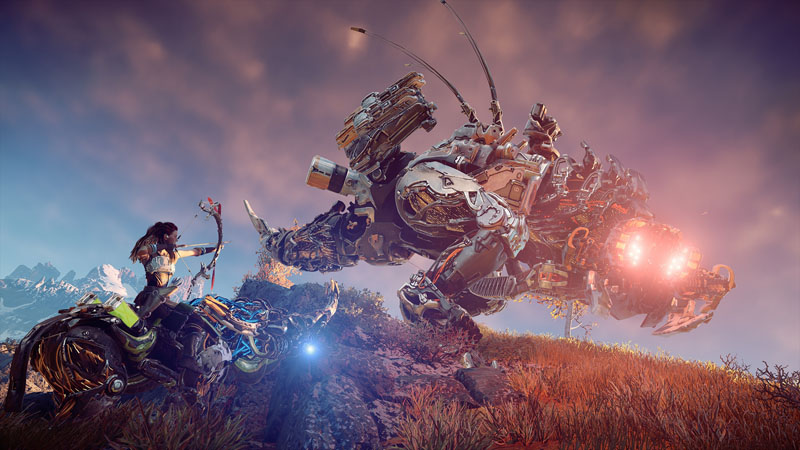
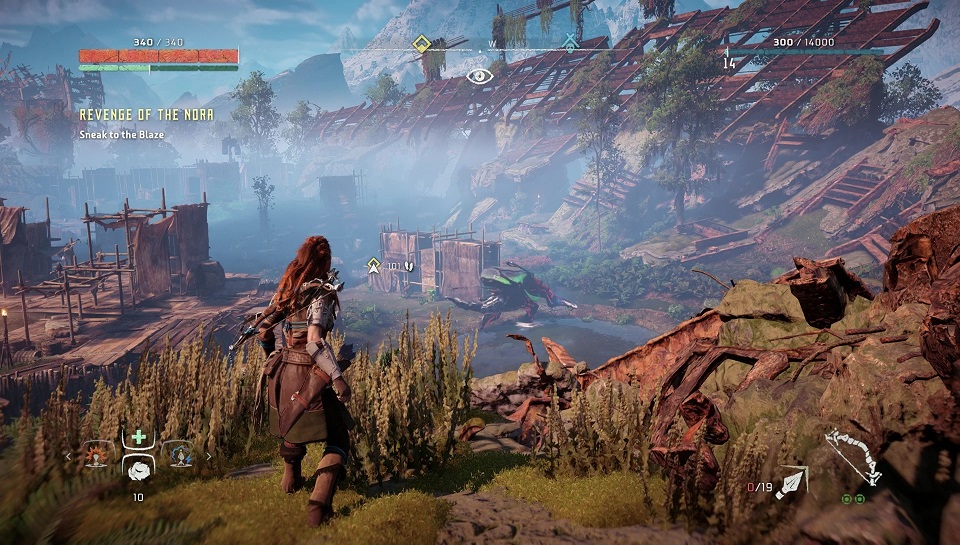





Published: Mar 1, 2017 02:53 pm